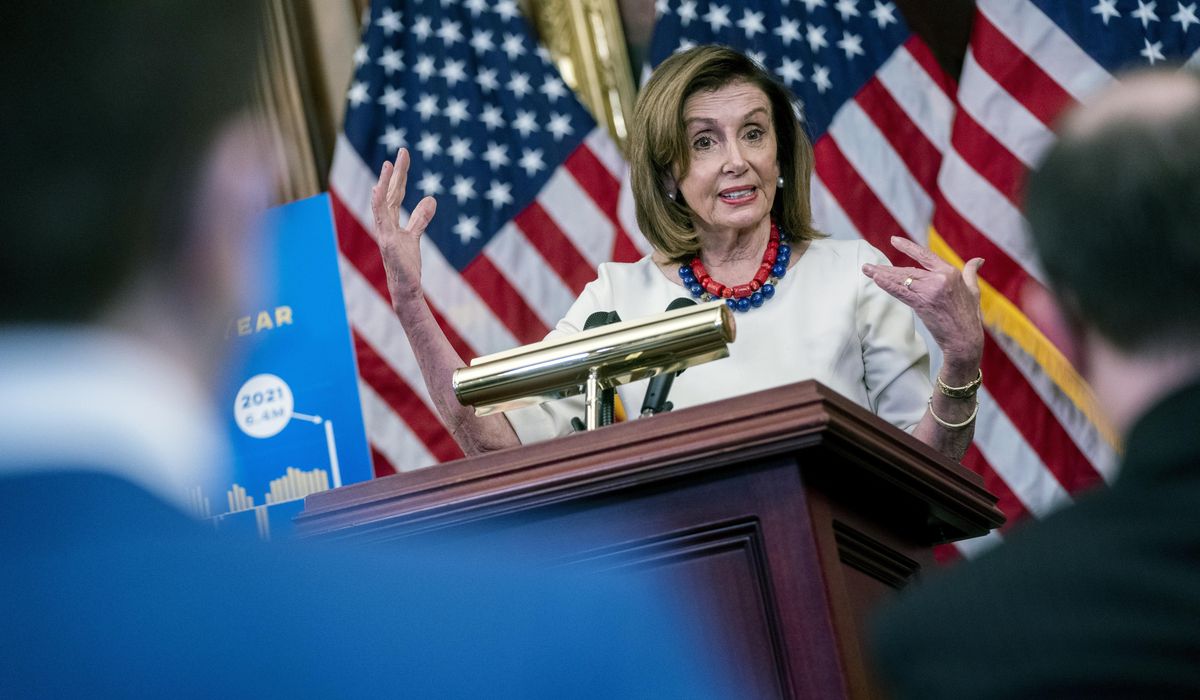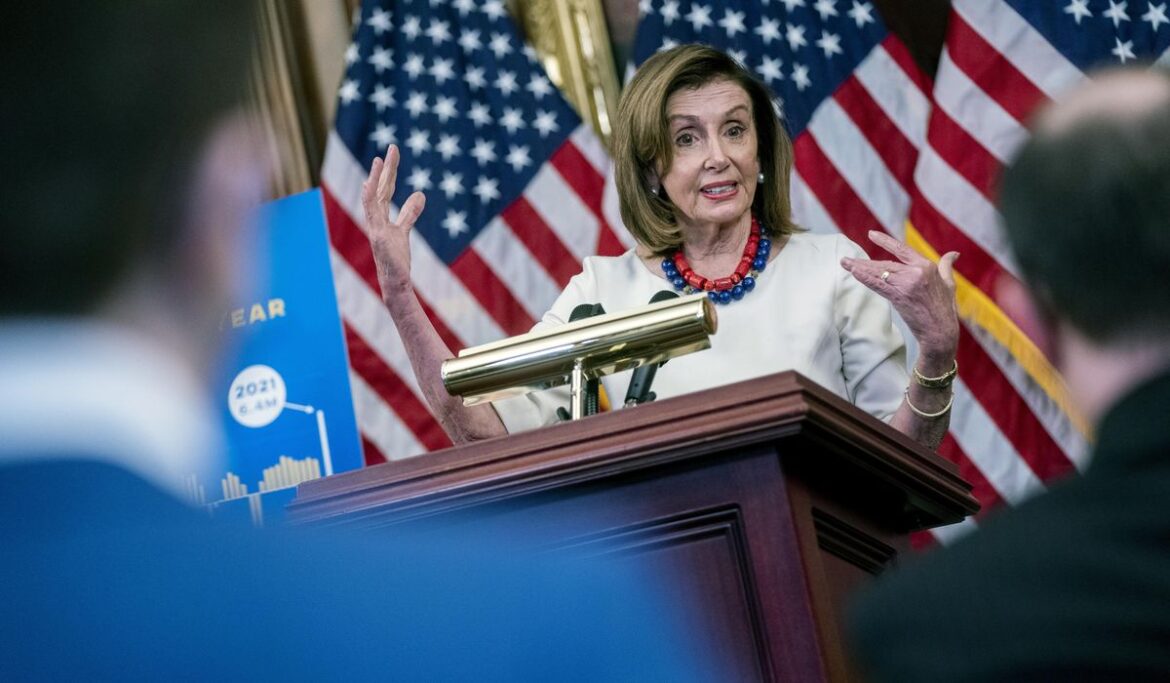
House Democrats have unveiled their version of sweeping legislation aimed at bolstering U.S. competition with China, though bipartisan buy-in will be needed to finish the job and Republicans objected to being shut out of the process.
The nearly 3,000-page bill is a hodgepodge of stalled spending on U.S. science and technology, including $52 billion for semiconductor manufacturing and $45 billion to shore up U.S. supply chains.
President Biden called it an important step to “make our supply chains stronger and reinvigorate the innovation engine of our economy to outcompete China and the rest of the world for decades to come.”
House Speaker Nancy Pelosi, California Democrat, praised “bold, results-oriented legislation” which she said will solidify U.S. leadership on the global stage.
Democrats dubbed the bill the COMPETES Act, achieving that acronym with the title America Creating Opportunities for Manufacturing Pre-Eminence in Technology and Economic Strength Act.
The bill serves as the lower chamber’s version of the Senate’s $250 billion U.S. Innovation and Competition Act which passed in June with the support of eighteen Republicans and 50 Democrats.
The House version, on the other hand, has been plagued by months of stalled negotiations, and both chambers have toiled with separate versions of legislation that combine a wide swath of tough-on-China measures put forward by lawmakers.
In November, Senate Majority Leader Charles E. Schumer, New York Democrat, and Mrs. Pelosi vowed to deliver the legislation to the president’s desk “as soon as possible.”
Key differences remain between the two versions and House and Senate leadership are expected to begin smoothing out a compromise version after the House takes up the bill as soon as next week.
House Republicans have voiced frustration with the process, saying they have been sidelined while Democrats hammered out key details.
“We have been in talks with House and Senate committees of jurisdiction for weeks, trying to put together a bipartisan bill that could pass Congress,” said Rep. Michael T. McCaul of Texas, the ranking Republican on the Foreign Affairs Committee. “Rather than allowing those talks to play out, Speaker Pelosi and House Democrats have decided to torpedo the chance of a bipartisan, bicameral bill to confront the generational threat posed by the Chinese Communist Party.”
Over the summer, House Foreign Affairs Committee Democrats largely dismissed Republican input in its markup of the Ensuring American Global Leadership and Engagement (EAGLE) Act, a key component of Tuesday’s bill.
The bill passed in committee in a party-line vote.
Republicans took issue with the bill’s climate-related provisions, which they said were largely about political messaging and with what they characterized as insufficient measures on control of technology exports.
“I would strongly urge Speaker Pelosi and other House Democrats to work with Republicans on a bill that will actually counter CCP aggression and that has the ability to pass both houses of Congress,” Mr. McCaul said. “These futile messaging bills are pointless.”
House Science Science, Space, and Technology Committee Republicans, too, are disheartened by the bill, which they say dashed months of bipartisan work.
“I have been urging Democratic leadership to begin conferencing these bills with the Senate since June, to no avail,” said the committee’s top Republican, Rep. Frank Lucas of Oklahoma. “And now that Speaker Pelosi has finally decided to act, she has done so with no regard for all of this bipartisan work.”
“We cannot afford to play politics while the Chinese Communist Party threatens our economic and national security,” he said.
The legislation is a priority for Democrats. The sweeping legislation would be a big win for Mr. Biden, who has been hobbled by a string of legislative defeats.
The bill also reflects growing consternation with Beijing. Tough-on-China rhetoric has emerged as a rare unifier on Capitol Hill, though the two parties remain divided on how to confront Beijing.
Lawmakers on both sides of the aisle have introduced a slew of bills aimed at reducing U.S. reliance on Chinese goods, countering Beijing’s military aggression in the Pacific, and bolstering the U.S. commitment to Taiwan.
Last year alone — halfway through the 117th Congress — lawmakers introduced 238 bills aimed at China, but both chambers hit a wall when it came to moving the legislation over the finish line.
Almost nothing reached President Biden’s desk.





